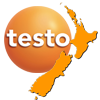
The New Zealand government is in charge of monitoring all levels of food safety compliance nationwide. The primary legislation for governing food safety is is the Food Act 2014. It is administrated by the Ministry for Primary Industries. Furthermore, the Food Standards Australia New Zealand develops food standards after consulting with other government agencies and stake holders.
What are the responsibilities of EHOs?
Environmental Health officers (EHOs) are responsible for visiting businesses across the food cold chain to determine whether a given business is following the correct quality assurance practices. This can stem from public allegations made against a business following the diagnosed foodborne illness, or come as a periodic audit.
The EHO’s also aid in educating businesses on how to correctly follow food safety laws. This includes guiding enterprise owners on ways to develop operational food safety programs. By doing this, they are able to ensure that every link in the food cold chain is compliant, allow for a smooth delivery of product for both domestic consumption and international export.
Why are audits important factors in better food safety?
Food safety audits are the corner stone of the framework protecting the public from food safety health risks. These include risks such as foodborne illness or contamination from inedible materials. Periodic checks of business’ quality control and assurance parameters allow customers to have peace of mind that every precaution has been taken to maintain high standards. In order to pass a food safety audit, operators need to track their own safety practice performance.
Testo's Saveris Food solution
The Testo Saveris is the perfect device for digitising data logging and analysis. It is capable of monitoring all relevant food safety parameters in one simple workflow. This reduces the risk of manual data entry errors that often plague the process.
Three key benefits of the Saveris food safety instrument are as follows:
- A streamlined ability to produce and share reports required to prove food safety compliance, making compliance simpler than ever.
- Improved Data transparency across your food business. This ensures that your Food Safety Supervisor and all other relevant parties have the ability to easily access any information to monitor and enforce compliance.
- Improved workflow efficiency brought on by all data being stored in one place. Data is automatically logged and entered into reports, reducing risks or incidents that may cost your business dearly.
EHO safety audits are vital in improving your business' approach to perishable goods preparation, distribution and storage. Make sure your operation is in good health with Saveris from Testo. For more information, contact the Testo team today!

